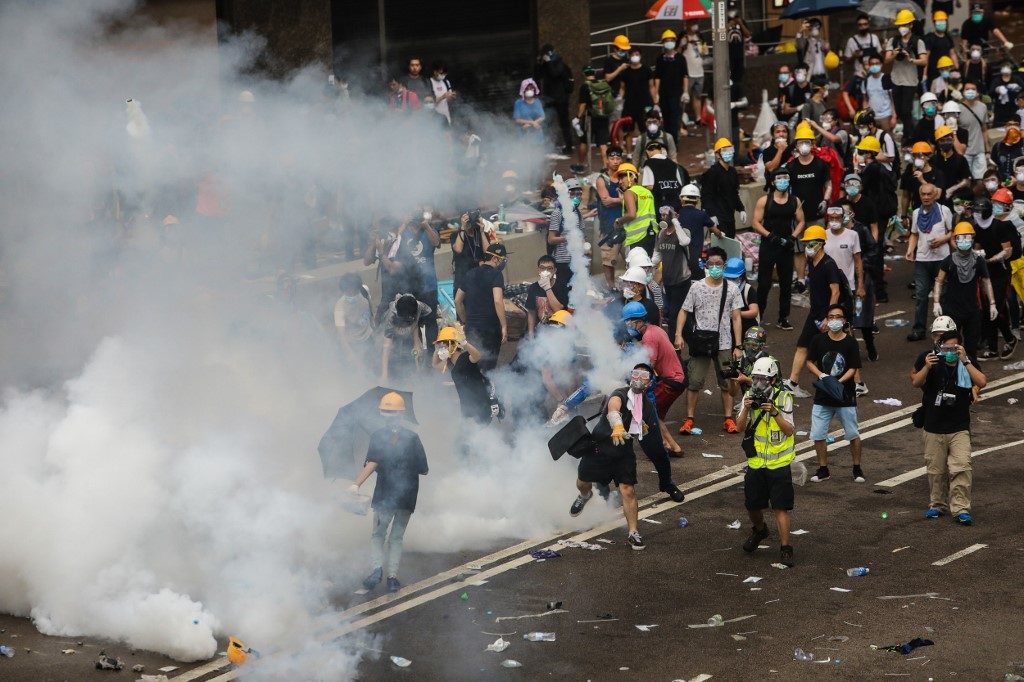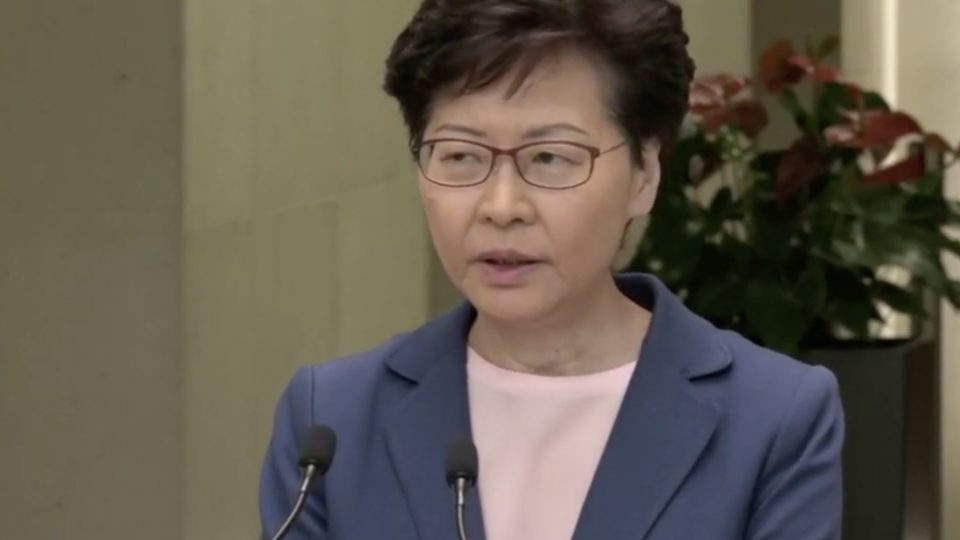Following weeks of huge street protests and violent clashes between police and civilians over a controversial extradition bill, Hong Kong’s embattled leader Carrie Lam this morning admitted to the press that the legislation had been a “total failure,” and assured the city that “the bill is dead.”
Speaking ahead of her weekly meeting with the Executive Council this morning, Chief Executive Lam told reporters that she was “shocked and saddened” by the recent events of the past weeks, and acknowledged that her previous announcement that the bill had been suspended — and not fully withdrawn as protesters had demanded — had not done enough to satisfy the public.
“There are still lingering doubts about the government’s sincerity, or worries whether the government will restart the process in the Legislative Council,” she said, referring to a concern echoed over and over by demonstrators in the streets.
“So I reiterate here: there is no such plan, the bill is dead.”
“My sincere plea is please give us an opportunity, the time, the room for us to take Hong Kong out of the current impasse and try to improve the current situation,” she added.
Despite the seemingly definitive statement, however, Lam stopped short of saying what has long been the magic word among Hong Kong’s protesters: “withdraw.”
In past appearances, Lam had labored to convey that the bill will effectively die on the vine at the end of the LegCo’s current term next year, though demonstrators have returned to the streets numerous times since, saying they have no faith in the government keeping its word without a full withdrawal.
Lam today said she did not think protesters would believe her if she used the word “withdraw.”
“To some extent, if it was withdrawn today, it could be brought back to LegCo three months later,” she said. “But maybe the residents want to hear a very resolute and decisive saying. So ‘the bill is dead’ is a relatively resolute saying.”
In addition to the official withdrawal, protesters are also demanding an independent investigation into the police’s use of force at a chaotic rally on June 12, the official retraction of the term “riot” to describe that protest, the release of those arrested in the course of the anti-extradition protests, and for Lam herself to resign.
Lam didn’t budge on any of those demands in her remarks.

“We have not given a label to what took place on the 12 [June] march,” she said, referring to the “riot” designation, which could carry legal weight when charging protesters arrested that day. “Whatever label given by whoever is not going to have any impact on the ultimate prosecution decision, because prosecutions in Hong Kong are undertaken independently by the Department of Justice in accordance with the evidence, the law, and also the prosecution code.”
She added that the investigation into the authorities’ use of force against protesters was being undertaken by the Independent Police Complaints Commission, and its results would be available in six months. Protesters have demanded that a fully independent task force be established to carry out the investigation.
She also dismissed calls for amnesty for protesters, saying such a move “bluntly goes against the rule of law in Hong Kong.”
Public anger against the government has surged thanks to its perceived insensitivity to concerns over the bill, and was compounded by the police response on June 12, which saw officers fire rubber bullets, bean bag rounds, and some 150 rounds of tear gas to disperse a crowd of mostly peaceful protesters.
In light of that response, and the government’s perceived intransigence, the anti-extradition movement has transformed into a broader referendum on Hong Kong’s status under the “one country, two systems” framework, and Beijing’s gradual encroachment on the semi-autonomous territory’s special freedoms.
Pro-democracy party Demosisto released a statement after Lam’s press conference calling on her to clarify whether the bill was well and truly withdrawn. They also referred to the police’s complaints commission as a “toothless tiger,” and reiterated calls for an independent body to investigate the authorities.
In a nod to the broader pro-democracy bent the protests have taken, they also said that solving the “deep-seated” social problems Lam referred to in her remarks would require political reform, including universal suffrage.
NOTE: This story has been updated to add additional comments from Lam and a statement from Demosisto.
Additional reporting by AFP.




